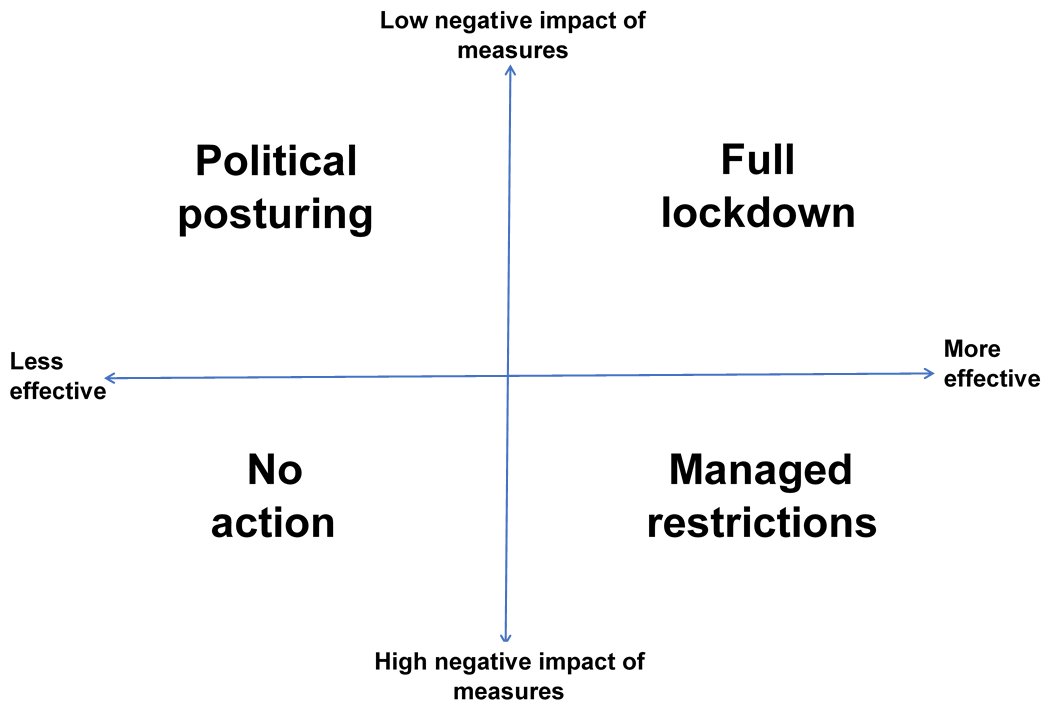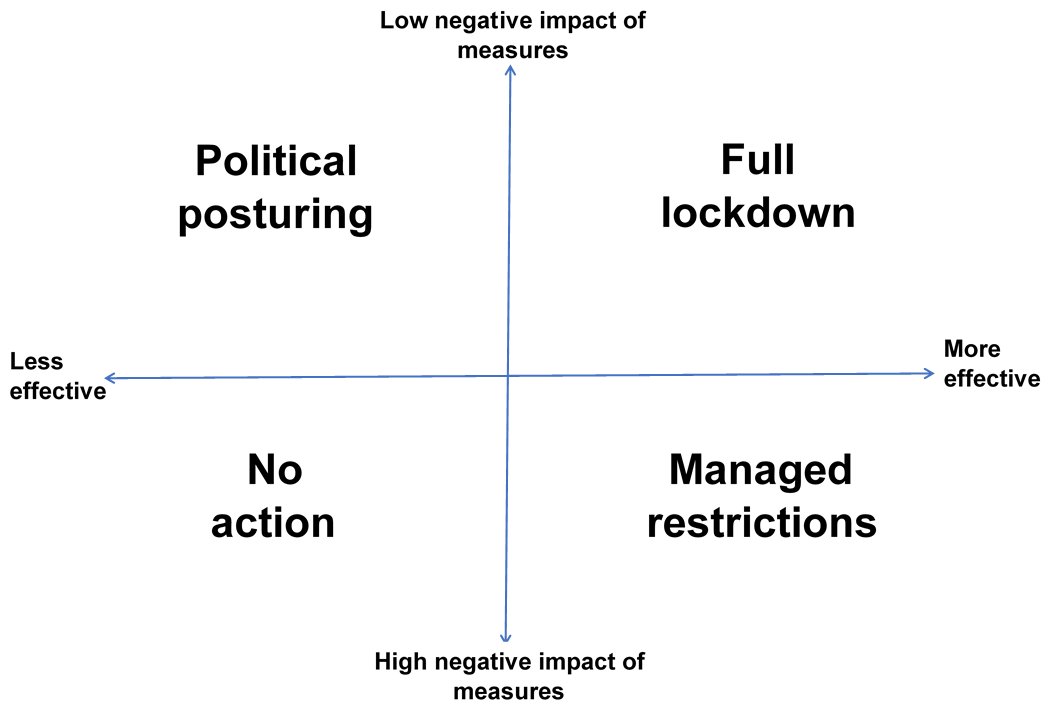I& #39;ve been trying to systematise the politics of lockdown, and I decided a 2 by 2 grid would help. (Thanks @ahc) If you think lockdown measures are highly effective and with low negative consequences then you go full lockdown. Simple.
If on the other hand you think they are not effective but have high negative consequences then you do nothing. Again, simple. So that& #39;s the top right and bottom left quadrants sorted.
Let& #39;s turn to top left, if you think measures have a low negative impact but are not particularly effective, then these measures are primarily for political posturing. It make you look tough. But this can go wrong if there are unforeseen consequences - i.e. 10pm curfew.
So we end up in the bottom right hand corner, and most people are to a greater or lesser extent in this quadrant, restrictions are effective but they have negative consequences. Therefore, which restrictions are most effective with the least harmful consequences?
This is the whole ball game. One side of the equation is about & #39;following the science& #39; but that& #39;s not always clear as to where that leads, but the other side is following the politics. Measures have economic, social and political consequences and therefore are weighed up.
As opposed to in March where we knew little about how the virus behaved, and less about the negative consequences of the lockdown, we now know more. That& #39;s why for reasons of mental health, education, social and spiritual as well as economic welfare, there& #39;s more hesitancy.
This doesn& #39;t mean a fuller lockdown isn& #39;t needed but it does mean there will be more push back against it. People will weigh the impact more critically, and have more arguments at their disposal to use against it. And political disagreement is healthy - it forces scrutiny.
This also means that in our communities and in our churches there& #39;ll be disagreement on the best course of action. Some will approach rising case numbers as a siren call for fast and firm action, others will say, let& #39;s ride it out, focus on protecting the elderly and infirm.
Those who consider lockdown measures to be ineffective will be resistant to limits on church activity (masks/singing), especially when it impacts activity deemed integral to their beliefs.
While for others, activities may be less important, or measures more effective, so restrictions welcomed and encouraged as vital for the protection of the congregation and community.
There are religious freedom implications to lockdown measures, and churches are currently still allowed to meet across the UK, but how they are viewed will be filtered by where we sit on these spectrums. This impacts how we read and apply Romans 13 to our current situation.

 Read on Twitter
Read on Twitter





